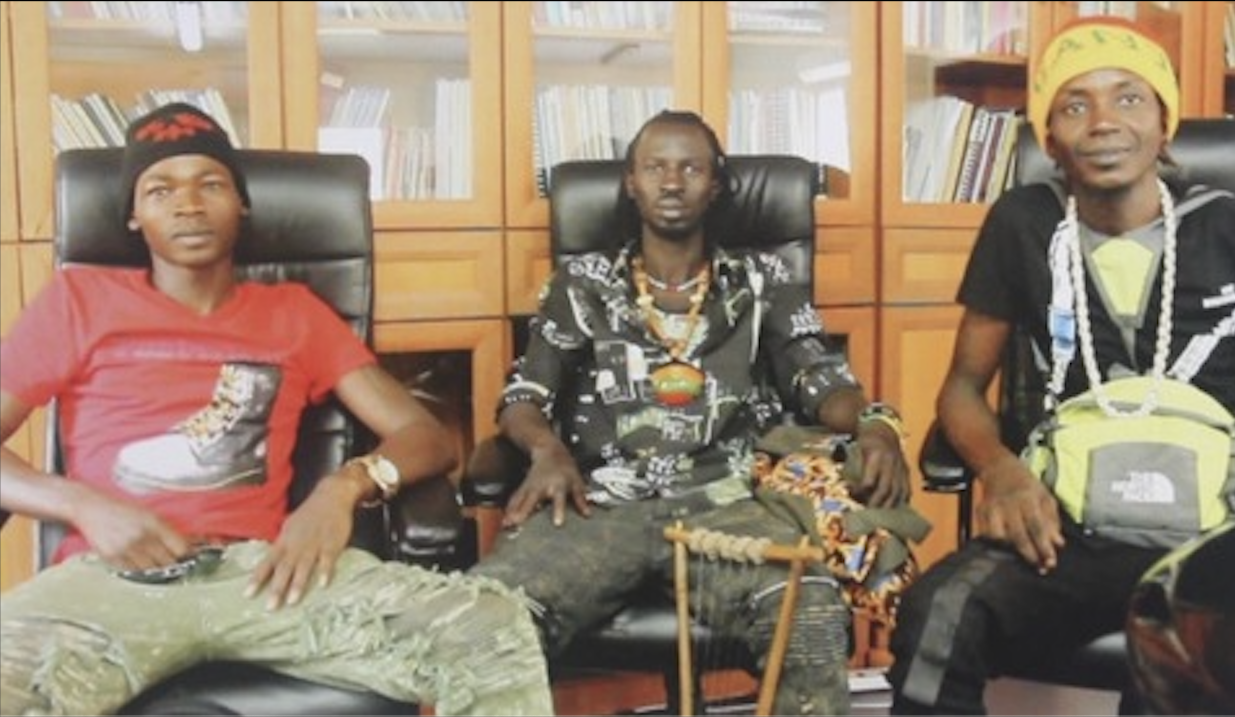Born and raised in the Nuba mountains in Sudan, Kamal Ramadan, Kodi Marshall, and Ganja Ali have for years been fighting for the rights of the Sudanese people. In 2014, the trio formed the group Nuba Mountains Sounds, and has since promoted human rights and freedom through music and movie productions. “We wish to be the voice of the voiceless,” Kodi stresses.
The trio produces reggae, dance hall, and hip hop music about the struggles of the Sudanese people. “We have grown up in a war zone. We have seen people dying, we’ve seen bombs, we’ve seen a lot of things – this is why we sing songs about freedom,” Kamal says.
The trio were forced to leave Sudan as they feared for their own safety, leading them to seek asylum in Uganda, but not without challenges. “When we came, we did not have all the necessary papers, and [border control] did not believe our story,” Kamal says. Still, they are waiting to obtain all their legal papers. Consequently, they are living a life in limbo, unable to continue producing music and movies, or their human rights work. “The only thing we want is freedom, freedom for all,” Kodi states.
While carrying out their work in Sudan, the group faced a lot of repercussions in the form of threats, harassment, and restrictions. These include restrictions by the government to perform and screen movies in Khartoum. “If you sing about love, you will not have any issues, but if you want to tell the truth about people’s struggles, you will have a direct problem with the government,” Kamal tells us.
In addition to making music, the trio has produced five movies about the situation in Sudan, including a movie about HIV/AIDS. Their latest movie, Akasha, was screened at international film festivals in Canada, France, Morocco, and South Africa. Due to their asylum process and travel restrictions, the trio was unable to attend the screenings. “We wish to go and promote our work, but we are not allowed,” Ganja says.
Since 2017, the group has received support form DefendDefenders, including financial support, protection, and capacity building training to continue their activism and art.

